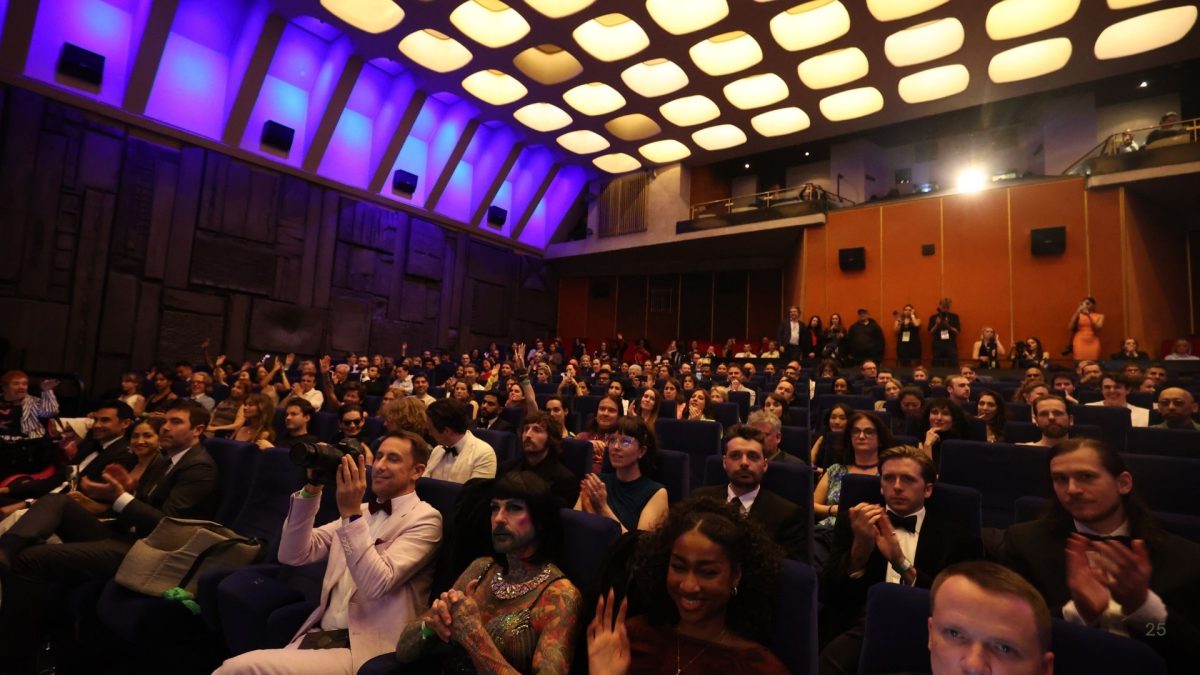In 2025, the film and TV industry is driven by two powerful forces: audience fragmentation and algorithmic discovery. Streamers, studios, and sales agents are no longer just chasing genre—they’re hunting emotionally resonant, high-concept stories that travel globally and stand out in a saturated market. Obviously, no one can predict the future. Here is my genre guide.
Elevated horror, tech thrillers, dark comedies, character-driven thrillers, and unconventional romances all offer what commissioning execs crave. As a writer can you create strong hooks, complex characters, and thematic depth. These genres succeed because they tap into urgent cultural anxieties. Who isn’t worried about at least one of these: AI, loneliness, power imbalances, grief—while still being deliverable on a modest Raindance-style budget.
Whether it’s a love story haunted by memory or a thriller shaped by gig economy injustice, audiences want stories that reflect their fractured world. Distributors want material that’s marketable, bingeable, and award-ready. For screenwriters, these genres are the sweet spot where artistry meets opportunity. Write the right kind of bold, timely script—and you’re in the game.
The Smart Writer’s Genre Guide
Here is my take on genre given my experience at the Raindance Film Festival. It’s also what I try and teach in the Screenwriters Foundation Certificate. Let me outline the 5 main elements in this genre guide, including my attempt at writing a logline. Please steal my loglines!
1. Elevated Horror
Why it sells: Low-cost, high-impact. Perfect for breakout filmmakers and fresh IP.
Industry wants: Deep themes + primal fears + prestige aesthetic.
Example Logline:
A teenage girl recovering from an eating disorder begins seeing distorted versions of herself in mirrors—only to discover the women she’s seeing never survived their own battles.
→ Think: The Babadook meets Black Swan.
Hot character types:
- Grieving parent with unresolved trauma
- Isolated teen with a dark secret
- Antagonist that might not be real
Tip: Pair with social themes—body image, climate dread, or generational trauma.
2. Sci-Fi / Tech Thriller
Why it sells: AI is here. Surveillance capitalism is real. Audiences are hungry for what if.
Industry wants: Smart world-building + emotional stakes + moral ambiguity.
Example Logline:
A neurodivergent coder discovers a dating app using dead users’ data to train a sentient AI—and must decide whether to shut it down or let it revive the voice of her deceased partner.
→ Think: Ex Machina meets Her.
Hot character types:
- Disillusioned ex-techie
- Whistleblowers caught in moral grey zones
- Scientists haunted by their own invention
Tip: Keep budget-conscious—1–2 locations, but big ideas.
3. Dark Comedy / Satirical Drama
Why it sells: Culture is absurd, and satire is the scalpel.
Industry wants: Bite, commentary, and strange-but-plausible characters.
Example Logline:
After a cancelled celebrity chef opens a “redemption-themed” pop-up restaurant in a remote English village, things spiral when locals start serving revenge—literally.
→ Think: The Menu meets The League of Gentlemen’s Apocalypse.
Hot character types:
- Narcissists in denial
- Cynical observers with emotional blind spots
- People trapped in systems they pretend to despise
Tip: Satire works best when it feels just a few headlines away from reality.
4. High-Stakes Thriller / Crime Drama
Why it sells: High demand on streamers. Big on suspense, character, and twists.
Industry wants: Female-driven, international, and morally gray.
Example Logline:
A broke London ride-share driver stumbles upon a dead passenger’s phone—and discovers they were blackmailing the city’s most powerful people. She decides to finish the job.
→ Think: Ozark meets Collateral.
Hot character types:
- Disempowered underdogs turning the tables
- Intelligent criminals with sympathetic motives
- Investigators compromised by personal baggage
Tip: Strong hooks + layered psychology = what reps look for.
5. Romantic Drama with a Twist
Why it sells: Emotionally rich, awards-bait, Gen Z-friendly.
Industry wants: Intimacy, longing, and relationships complicated by time/place/self.
Example Logline:
When a queer musician returns to their small town for their father’s funeral, they reconnect with the childhood best friend who ghosted them just before transition.
→ Think: Past Lives meets Call Me By Your Name.
Hot character types:
- Queer protagonists navigating memory and identity
- Lovers out of sync with time or culture
- Characters too emotionally intelligent to fall into cliché
Tip: Romance today isn’t about “getting together”—it’s about why we couldn’t.
Fade Out: Final Genre Guide Tips:
- Make the lead role irresistible to an actor (complex, flawed, emotionally charged).
- Give it a hook: an intriguing premise or contradiction in the logline.
- Write with production in mind: 3-5 key locations max = indie sellable.
- Know your tone: “It’s X meets Y” works when it’s fresh (e.g., Her meets Get Out).
Learn with us
We have been offering cutting edge evening, weekend and degree courses for over three decades.
What’s more, no film school is part of a Top 50 internationally acclaimed film festival.
About a quarter of the shorts and features we screened in 2025 were by filmmakers who first touched our film training programme. And our programmers found out about our alumni AFTER they chose these films.
Make your movie!
Check out our short courses here
Explore our one- and two-year degree courses here
Want more?
Why not Join and Connect with the Raindance community here

